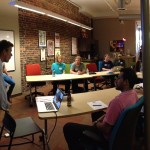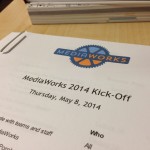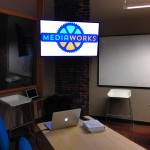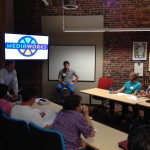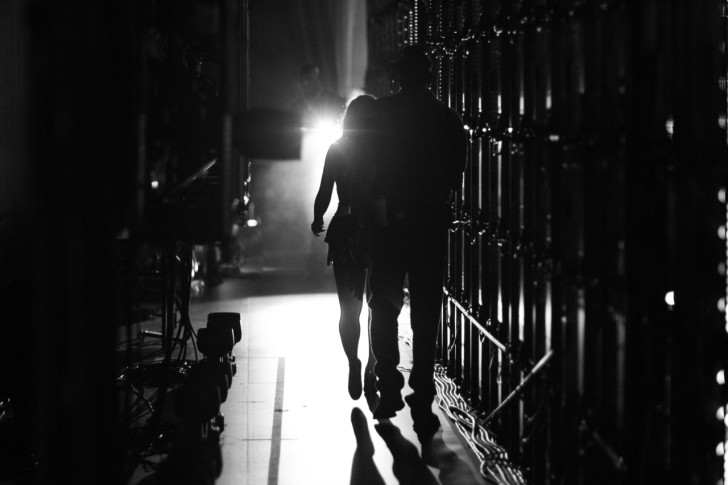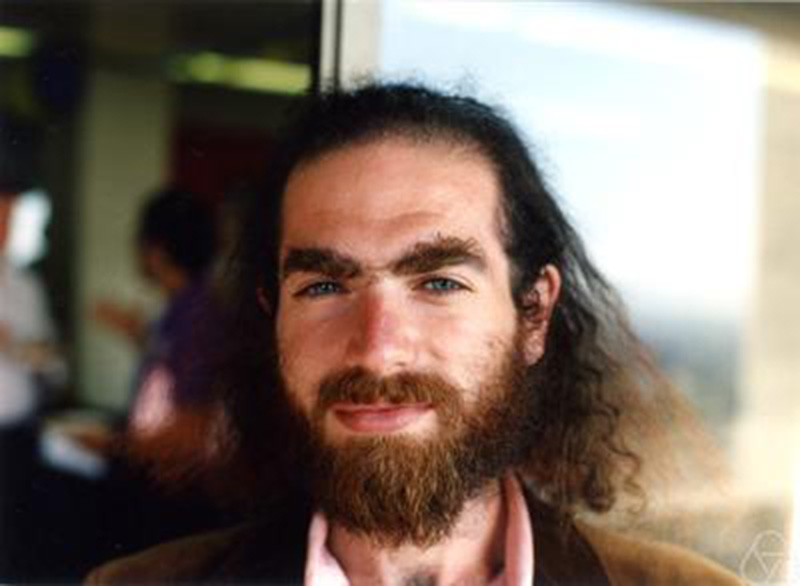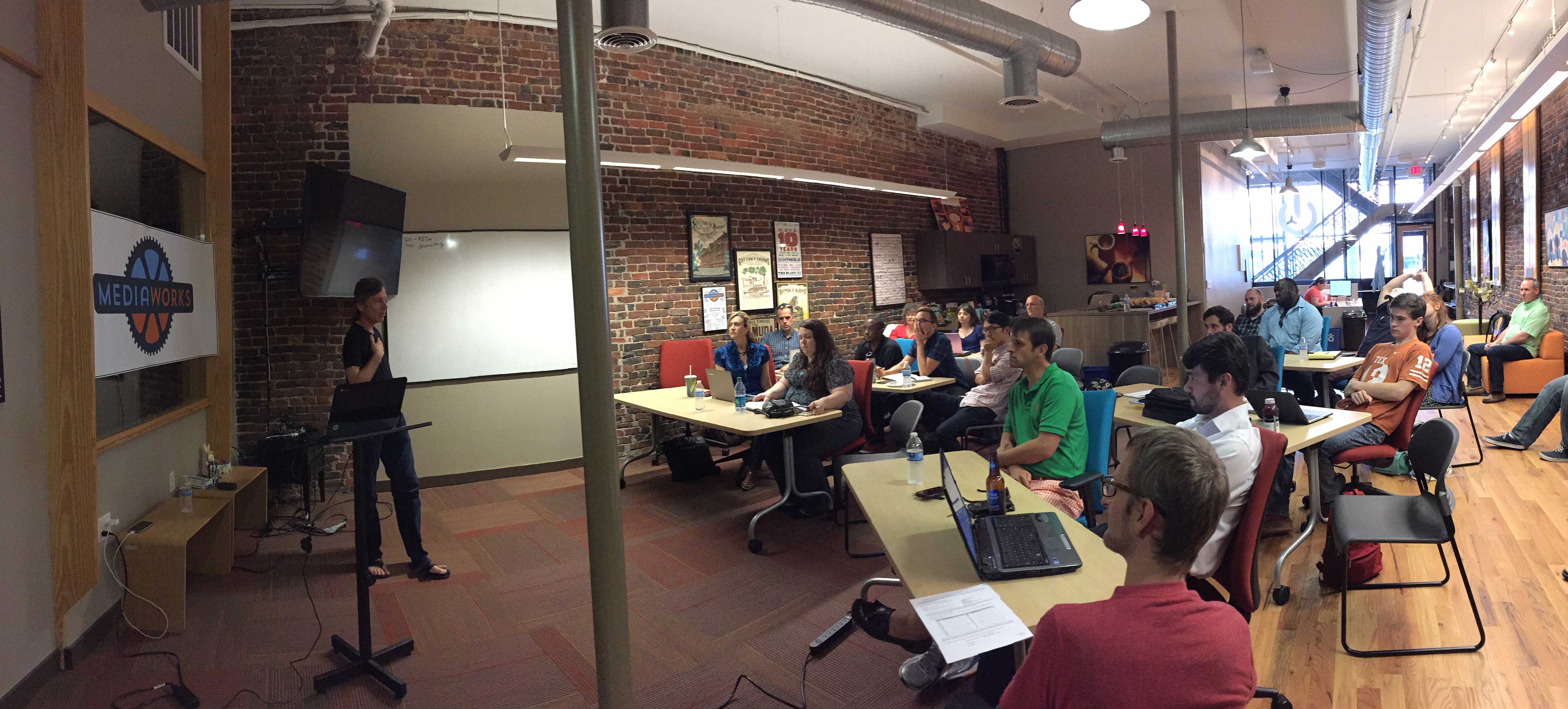
And so it begins. MediaWorks 2015 is in full effect. This past Monday we met the teams for the first time, and dare I say it? we’ve got a badass cohort.
Without further ado, the MediaWorks class of 2015:
- Baracksdubs puts words in people’s mouths, entertaining millions through musical mashups of President Obama’s speeches.
Children’s Media Studio creates interactive, educational media content for children from pre-readers through early education. Their first product, Sing and Spell, helps pre-readers learn letter sounds through animated content.
- Emcapture is a Virtual Reality Magazine for Knoxville, TN that will serve the community and bring people places they have never been. It will also provide advertisers a platform on new digital media to reach new customers.
- Evolvr creates an immersive, 360-degree real estate tour experience that allows users to visit multiple potential properties in various locations.
- Instartly is a 21st century media company that uses tight processes and best-in-class back-end automation to blow away what micro business owners expect to get from website design, hosting and digital communications: all for only $69 per month.
- Menu Magic™, “The Only Menu You’ll Ever Need™,” is a platform containing all menus for every dining establishment around the world, and further, organized that information in a simple, user friendly way in order to improve the dining experience for our users.
- Pictograph allows users to easily discover, retrieve, store, and organize customized information related to finance, business, or marketing.
- RESQUE is smart social media automation for real estate agents.
- SolidPick is a web-based application that provides sports fans a platform to pick game winners and filters standings by sport, conference, division, team and state in order to highlight and put a face to the best at picking games.
- WDVX is a listener-supported radio station, whose idea is to create a social media tool that will enable listeners to collaborate with other WDVX fans and create their own weekly WDVX radio show.





